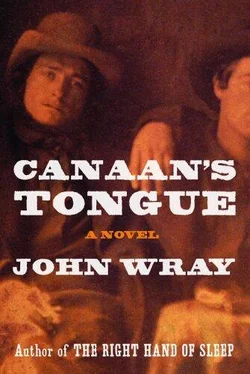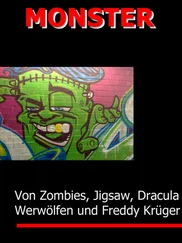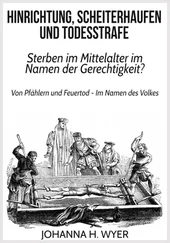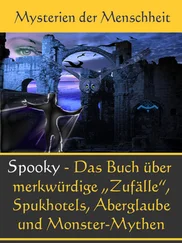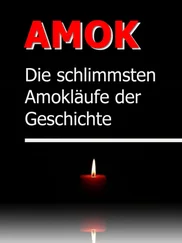I began to build a name for myself, in circles. But the more I grew inside that name the tighter it became, and the more I wanted to slip out of it like a cicada from its shell. I was bigger than my name already, and I knew it. I was not yet nineteen years of age.
THE REDEEMER HAD BEEN PARTIAL to me from the start, and had talked to me long and lovingly about the Trade—; in reality, however, the sum of what I knew could have fit into a pipe-stem. One afternoon, when I was sitting with him in his quarters, he leaned back in that high-chair of his and sucked musingly on his pipe. “You’ve been a capital striker for us, Oliver,” he said finally. “Capital.”
“Thank you, sir.”
He squinted at me then. “What’s that you’re wearing?”
“Broad-cloth, sir. A recent cut.” I smiled at him. “They call it a smoking-jacket.”
“Don’t wear black cloth in the morning, Oliver.” He pursed his lips. “Don’t wear evening-dress, of any kind, on any occasion before six o’clock. The French, of course, wear evening-dress on ceremonious occasions at whatever hour they may occur—; here, however, we follow the English custom.”
He shuffled some papers about on his desk. He’d said things of this sort to me before, and I wasn’t too put out by them. “The exception is New Orleans, of course. Follow French custom in that city.”
“I will, sir. Thank you.”
He studied me for a time. “You’ve never been to pick up any of the niggers you’ve struck, have you?”
“No sir,” I answered. My throat tightened with excitement.
He flipped idly through a stack of ledgers. “There’s one by the name of Bosun, not too far down-river. His time is nearly due. Perhaps you and Mr. Kennedy—”
“Not Kennedy,” I spat out, helpless to keep still. The Redeemer looked up sharply from his desk, not so much in anger as in surprise—; his surprise, however, lasted but a moment. When he spoke it was clear that he knew how Kennedy had found me, and what had happened after.
“No—; not Kennedy, of course,” he said.
I said nothing then, waiting for some reference to my disgrace. But instead he struck a match, took another pull from his pipe, and said in an amicable voice—:
“It is strange that it was Kennedy, of all people, who brought you to us. You two are so very disalike.” He looked at me. “Your mother must have been une femme sans pareil. ”
“Beg your pardon, sir. I never knew her.”
He nodded at this, his coy little mouth running over with smoke. “Of course, Oliver. Yes. I mean the woman you were— indentured to, when Mr. Kennedy came across you.”
“Mrs. Bradford was never a mother to me, sir,” I lied. “She was the woman who took me and put me to work.”
“She did a good deal more than that, as I understand it,” the Redeemer said warmly. “She fed you, she clothed you, she taught you to read and cipher—”
“She’d been a school-teacher,” I answered, cutting him short. I cleared my throat and continued, if only to keep him from saying any more—: “It was more for her pleasure, sir, than for mine.”
“All right, Oliver—; yes.” He smiled indulgently. “You’d know better, of course.” He made a clucking noise with his tongue, the same noise that I’d often heard Parson make. “Mind you,” he said. “I had no school-teachers to give me my finishing, when I was of tender years.”
“You had Parson,” I said.
To this day I wonder at my imprudence. The Redeemer froze in mid-puff and glowered crookedly at his pipe, as though it, not I, had spoken out of turn. Then he went on cheerfully—:
“You looked like the Dauphin himself when Kennedy brought you in, dear boy. I remember it well. All done up in sashes and chenille—”
“She made good money with that still,” I said hoarsely. “But you know that, of course.”
He raised his eye-brows. “Why the deuce should I?”
“Because you own it now.”
He laughed heartily at this and turned the talk to trifles. We spoke no more about my history, then or after—; but a small, true thing had happened. Out of my shame I’d rebelled, however briefly, and the Redeemer had indulged me.
Two nights later we set out for Bosun’s rendezvous.
THE RAFT WE RODE ON was a modest one, little more than tree-stems lashed to a birch-plank floor. The Redeemer and I were the only riders—; I didn’t know, then, of the years he’d spent flat-boating, and was amazed at his skill with the steering-oar and pole. As we drifted, seemingly without effort, just in sight of Louisiana, he pointed out banks, chutes, and snags to me with a confidence born of a lifetime spent on the river. He took particular pleasure, I remember, in identifying the stars. The commonest constellations were known to me, of course, but the Redeemer mapped out dozens upon dozens across the sky, many of which I’ve never heard of since. One in particular seemed to delight him, a dim cluster to the left of Cassiopeia that he called Herod’s Ladder—:

“It’s an entertainment to me, that one,” he said. “I’ve pointed it out to any number of our boys, and each of them sees something different in it.”
“Beg pardon, sir, but that’s natural enough.”
He set the pole aside and took me by the shoulder. “Listen closely, Oliver. Belief is like a river—: you can channel it any way you like. Channel it as easily as water.” He watched me a moment. “Do you follow?”
He’d lost me utterly. “Yes, sir. Belief is like a river.”
“That’s right, boy.” He grinned. “Belief in anything is a kind of madness—; and there’s nobody so gullible as a cracker.” He made a face. “Look at poor Asa Trist.”
I grinned back at him. “Yes, sir.”
We hushed for a time, our eyes on the firmament.
“Well?” he said finally.
“Sir?”
“What do you see in it?”
I looked up at the stars. “A ladder,” I said.
He laughed loudly at this. “A ladder! Truly?”
“Yes, sir. Isn’t that what you called it?”
He laughed again. “That’s right, Oliver. Herod’s Ladder. And you’ll climb that ladder yet, boy. Just you wait.”
THE PLAN WAS THIS—: to collect Bosun at an out-of-the-way landing (little more than a damp tongue of earth jutting east from Louisiana) and keep on down-river to the old Trist estate. Bosun was an enormous man, with hands the size of shovel-tips—; we’d sold him twice already for a mint. I spent the better part of the journey asking myself what he’d do when he found himself headed south yet again, rather than north, as arranged—; but the Redeemer was absolutely free of care. It had been years, he said— years —since he’d had cause to work the river. I wanted desperately to ask him what the cause was that particular day, but I sensed it had something to do with my future, and kept my wonderment to myself. We rode the last few miles in silence.
“By gum!” the Redeemer said suddenly. “If this ain’t just the way to run the river!”
I nodded and fussed with the collar-buttons of my coat. I’d drifted off for a time, but my sleep had been troubled. The nearer we drew to our rendezvous, the more the thought of Bosun began to harry me. When we’d last met, seven months before, I’d all but promised him Cincinnati.
“I’m pleased it brings back bygones for you, sir,” I muttered. “I’d much prefer the state-room of the old Vesuvius. Or even the Hyapatia Lee. ”
“That’s the dandy in you, Oliver,” the Redeemer said fondly. He was managing the raft entirely by himself, darting from one corner of the platform to the other. “Look lively, now!” he whispered. “There she is! To starboard!”
Читать дальше
